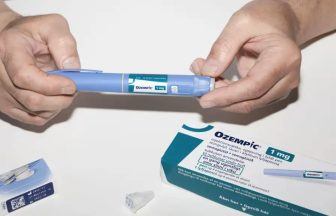A drug which could extend the lives of patients with a type of liver cancer has been approved for routine use in the NHS in Scotland.
The Scottish Medicines Consortium (SMC) accepted atezolizumab, sold under the brand name Tecentriq, for treatment of adult patients with advanced hepatocellular carcinoma.
The consortium heard that in addition to experiencing fatigue and pain, people with this type of liver cancer can suffer from a build-up of fluid in the abdomen which can leave them struggling to breathe and eat.
The newly approved treatment may enable patients to live longer as well as allowing them to maintain their quality of life and remain independent for longer.
Also approved for routine use in the NHS in Scotland were ofatumumab, sold as Kesimpta, for the treatment of relapsing-remitting multiple sclerosis (MS) and bempedoic acid, also known as Nilemdo, a tablet to lower cholesterol.
Ofatumumab manufacturer Novartis said patients can administer the injections once a month at home, cutting the need for hospital visits.
The SMC said the drug has the potential to reduce relapse rates, slow disease progression and improve quality of life.
The committee rejected the use of tafamidis (Vyndaqel) for patients with the rare condition transthyretin amyloidosis, in which fibres called amyloid build up in tissues around the heart, citing value for money concerns.
SMC chairman Mark MacGregor said: “I am pleased the committee has been able to accept these three medicines for use by NHS Scotland.
“Participants in our Pace (patient and clinician engagement) meeting for atezolizumab told us of the devastating impact of hepatocellular carcinoma, a type of liver cancer, on patients and their family.
“We know availability of this medicine will be welcomed and we hope it may allow patients to enjoy a better quality of life.
“Ofatumumab offers patients with relapsing-remitting MS another treatment option with the benefit of a monthly self-injection.
“Our decision on bempedoic acid provides a treatment option for certain patients with high cholesterol when no other treatments are available.
“We were unable to accept tafamidis as the evidence provided by the company was not strong enough to satisfy the committee of its cost effectiveness.”
Novartis welcomed the decision on ofatumumab, highlighting that Scotland has the highest rates of MS in the UK and the second highest reported in the world, with about 15,750 people living with the disease.
Chinmay Bhatt, managing director UK, Ireland and Nordics for Novartis Pharmaceuticals, said: “We know this past year has been a huge challenge for patients with MS in Scotland, with many regularly making long journeys into hospital for treatment in the middle of a pandemic.
“Ofatumumab will give patients access to a highly effective therapy from the comfort of their own homes, after initial guidance from a doctor or nurse.”
Morna Simpkins, MS Society Scotland director, said: “MS is relentless, painful and disabling, and this treatment increases the options for people to manage their condition and help prevent symptoms.”
Follow STV News on WhatsApp
Scan the QR code on your mobile device for all the latest news from around the country


 PA Media
PA Media























